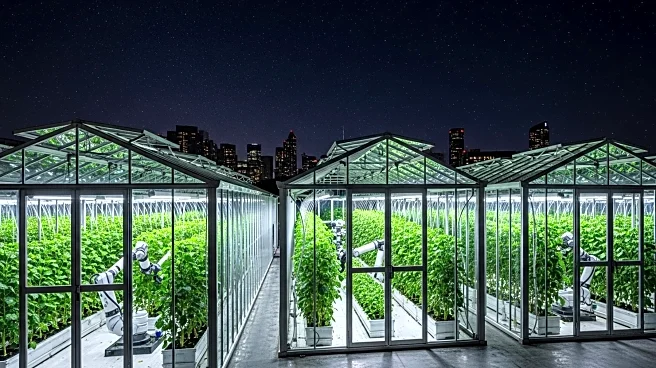What is the story about?
What's Happening?
Connected smart cities are transforming urban agriculture by integrating advanced technologies such as the Internet of Things (IoT), artificial intelligence (AI), and edge computing. These cities are shifting from traditional, centralized food systems to localized, sustainable frameworks that enhance food production, distribution, and access. The integration of IoT sensors, AI, and real-time data networks allows for precision farming, optimizing production and minimizing environmental impact. This technological infrastructure supports urban food systems, including vertical farms and hydroponic systems, to improve resilience and sustainability.
Why It's Important?
The integration of smart technologies in urban agriculture is crucial for addressing the challenges posed by rapid urbanization and climate change. By optimizing resource use and reducing environmental impact, smart cities can enhance food security and sustainability. The use of AI and IoT in agriculture allows for efficient resource management, reducing wastage and improving crop yields. This transformation supports the creation of resilient urban food systems, which are essential for feeding growing populations and achieving sustainability goals.
What's Next?
As smart cities continue to evolve, the adoption of precision farming technologies and IoT connectivity is expected to increase. Cities will likely expand their use of AI-powered platforms for real-time decision-making and resource optimization. The integration of renewable energy sources into urban agriculture systems will further enhance sustainability. Challenges such as data privacy, infrastructure costs, and digital literacy need to be addressed to fully realize the potential of smart city agriculture.
Beyond the Headlines
The shift towards connected smart cities in agriculture has broader implications for environmental justice and policy regulation. Ensuring equitable access to technology and benefits across urban areas is essential to prevent inequality. Collaborative planning and robust policy frameworks are needed to balance innovation with oversight, ensuring safe and efficient city food systems.















